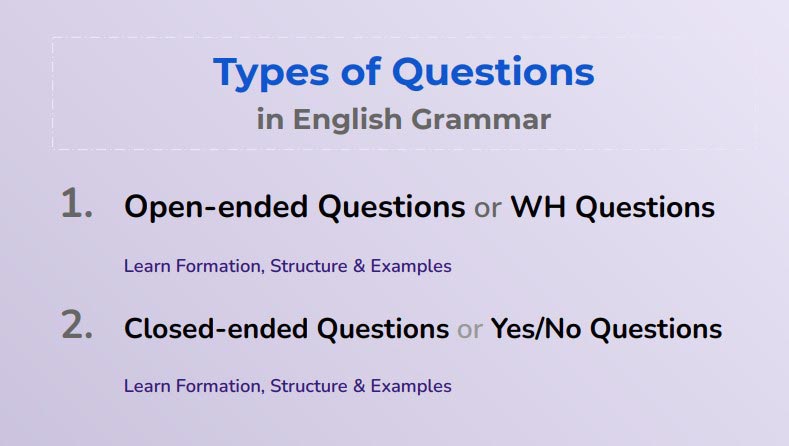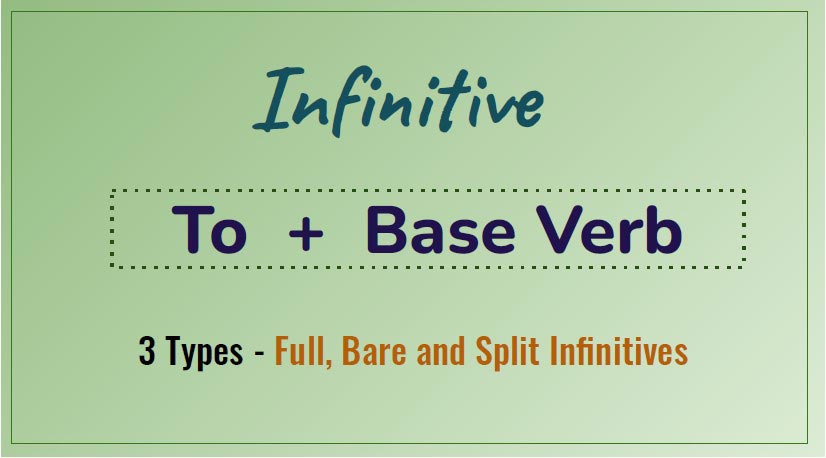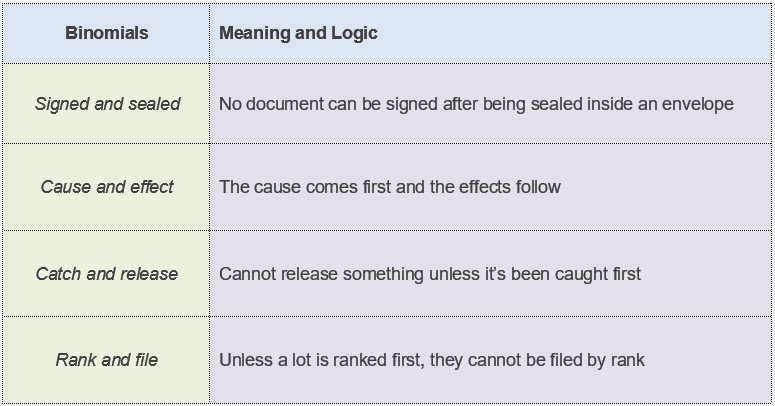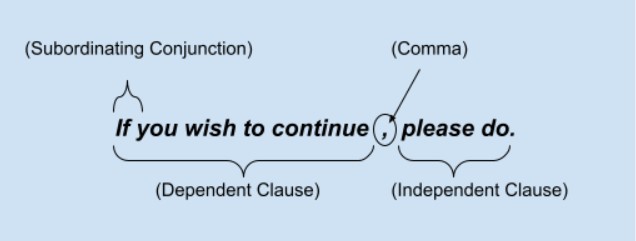Verb: Definition & Types
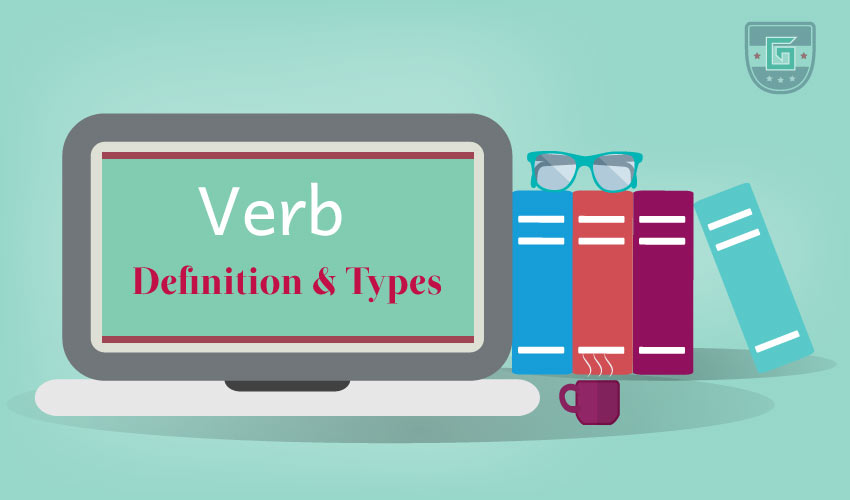
A verb is a word or a combination of words that indicates action or a state of being or condition. A verb is the part of a sentence that tells us what the subject performs. Verbs are the hearts of English sentences.
Examples:
- Jacob walks in the morning. (A usual action)
- Mike is going to school. (A condition of action)
- Albert does not like to walk. (A negative action)
- Anna is a good girl. (A state of being)
Verbs are related to a lot of other factors like the subject, person, number, tense, mood, voice, etc.
Basic Forms of Verbs
There are six basic forms of verbs. These forms are as follows:
- Base form: Children play in the field.
- Infinitive: Tell them not to play
- Past tense: They played football yesterday.
- Past participle: I have eaten a burger.
- Present participle: I saw them playing with him today.
- Gerund: Swimming is the best exercise.
Different Types of Verbs
- Main/Base Verb
- Regular/Weak Verb
- Irregular/Strong Verb
- Transitive Verb
- Intransitive Verb
- Weak Verb
- Strong Verb
- Finite Verbs
- Non-finite Verbs
- Action Verbs
- Linking Verb
- Auxiliary Verbs
- Modal Verbs
- Reflexive Verb
- Ergative Verb
- Phrasal Verb
- Lexical Verb
- Delexical Verb
- Stative/Being Verb
- Dynamic Verb
- Non-continuous Verb
- Participle
- Gerund
- Infinitive
Base Verb
The base verb is the form of a verb where it has no ending (-ing, -ed, -en) added to it. It is also called the Root Verb since it is the very root form of a verb.
Examples:
- I go to school every day.
- You run a mile every morning.
- Do your homework.
Regular Verb
The Verbs that follow the most usual conjugations are considered Regular Verbs. It is regular since it abides by most if not all of the regular grammar rules there are.
Examples:
- Rehan plays cricket.
- Tam called out my name.
- You really walked all the way back?
Irregular Verb
The Verbs that have irregularities in terms of following grammar rules are Irregular Verbs, in general.
Examples:
- Do the dishes.
- I hardly ever drink enough water in a day.
- She drove all the way back.
Transitive Verb
The Main Verb that takes a direct object sitting right after it would be a Transitive Verb. They usually construct the most straightforward of sentences.
Examples:
- She went to the fair.
- We do not like being called out loud in crowds.
- I love visiting my village home.
Intransitive Verb
The main Verb that does not take a direct object specified right afterward and rather there is an indirect one mentioned somewhere along the line is called an Intransitive Verb. These verbs often make the corresponding sentences incomplete.
Example:
- I laughed.
- John ran.
- A ghast of cold wind blew.
Weak Verb
Verbs that end with “-d” and “-t” in their Past Indefinite and Past Participle form are Weak Verbs. There is a tendency to associate Weak Verbs with Regular Verbs but not all Weak Verbs are Regular Verbs in the English language.
Examples:
| Present Indefinite | Past Indefinite |
| Spend | Spent |
| Walk | Walked |
| Book | Booked |
| Learn | Learnt |
| Want | Wanted |
Strong Verb
Strong Verbs are those in which the vowels in the verb stem changes from “i” to “a” to “u” in the Present Indefinite to Past Indefinite to Past Participle form of Verbs.
Examples:
|
Present Indefinite |
Past Indefinite |
Past Participle |
|
Ring |
Rang |
Rung |
|
Drink |
Drank |
Drunk |
|
Cling |
Clang |
Clung |
|
Swim |
Swam |
Swum |
|
Sing |
Sang |
Sung |
|
Wring |
Wrang |
Wrung |
Finite Verbs
Finite verbs are the actual verbs that are called the roots of sentences. It is a form of a verb that is performed by or refers to a subject and uses one of the twelve forms of tense and changes according to the number/person of the subject.
Example:
- Alex went to school. (Subject – Alex – performed the action in the past. This information is evident only by the verb ‘went’.)
- Robert plays hockey.
- He is playing for Australia.
- He is one of the best players. (Here, the verb ‘is’ directly refers to the subject itself.)
Non-finite Verbs
Non-finite Verbs are not actual verbs. They do not work as verbs in the sentence rather they work as nouns, adjectives, adverbs, etc. Non-finite verbs do not change according to the number/person of the subject because these verbs, also called verbals, do not have any direct relation to the subject. Sometimes they become the subject themselves.
The forms of non-finite verbs are – infinitive, gerund, and participle (participles become finite verbs when they take auxiliary verbs.)
Example:
- Alex went abroad to play (Infinitives)
- Playing cricket is his only job. (Present participle)
- I have a broken bat. (Past participle)
- Walking is a good habit. (Gerund)
Action Verbs
Action verbs indicate what the subject of a sentence performs. Action verbs can make the listener/reader feel emotions, see scenes more vividly and accurately.
Action verbs can be transitive or intransitive.
Transitive verbs must have a direct object. A transitive verb demands something/someone to be acted upon.
Example:
- I painted the car. (The verb ‘paint’ demands an object to be painted)
- She is reading the newspaper. (The verb ‘read’ asks the question “what is she reading?” – the answer is the object)
Intransitive verbs do not act upon anything. They may be followed by an adjective, adverb, preposition, or another part of speech.
Example:
- She smiled. (The verb ‘smile’ cannot have any object since the action of ‘smiling’ does not fall upon anything/anyone)
- I wake up at 6 AM. (No object is needed for this verb)
Note: {Subject + Intransitive verb} is sufficient to make a complete sentence but {Subject + Transitive verb} is not sufficient because transitive verbs demand a direct object.
Linking Verb
A linking verb adds details about the subject of a sentence. In its simplest form, it connects the subject and the complement — that is, the words that follow the linking verb. It creates a link between them instead of showing action.
Often, what is on each side of a linking verb is equivalent; the complement redefines or restates the subject.
Generally, linking verbs are called ‘be’ verbs which are - am, is, are, was, were. However, there are some other verbs that can work as linking verbs. Those verbs are:
Act, feel, remain, appear, become, seem, smell, sound, grow, look, prove, stay, taste, turn.
Some verbs in this list can also be action verbs. To figure out if they are linking verbs, you should try replacing them with forms of the be verbs. If the changed sentence makes sense, that verb is a linking verb.
Example:
- She appears ready for the game. (She is ready for the game.)
- The food seemed delicious. (The food was delicious.)
- You look happy. (You are happy.)
Auxiliary Verbs
Auxiliary verbs are also called helping verbs. An auxiliary verb extends the main verb by helping to show time, tense, and possibility. The auxiliary verbs are – be verbs, have, and do.
They are used in the continuous (progressive) and perfect tenses.
Linking verbs work as main verbs in the sentence, but auxiliary verbs help main verbs.
Do is an auxiliary verb that is used to ask questions, to express negation, to provide emphasis, and more.
Example:
- Alex is going to school.
- They are walking in the park.
- I have seen a movie.
- Do you drink tea?
- Don’t waste your time.
- Please, do submit your assignments.
Modal Verbs
A modal verb is a kind of auxiliary verb. It assists the main verb to indicate possibility, potentiality, ability, permission, expectation, and obligation.
The modal verbs are can, could, must, may, might, ought to, shall, should, will, would.
Example:
- I may want to talk to you again.
- They must play their best game to win.
- She should call him.
- I will go there.
Reflexive Verb
When the Subject and the Object are the same and the Verb reflects on the Subject, that is the Reflexive Verb. These Verbs are often used with Reflexive Pronouns like - myself, himself, herself, itself etc.
Examples:
- He has done it himself.
- I'll watch it myself.
Ergative Verb
Ergative Verbs can be used as Transitive and Intransitive Verb. They are also called Labile Verb in English.
Examples:
|
Intransitive Verbs |
Transitive Verbs |
|
The door opens. |
I opened the door. |
|
The bell rang. |
She rang the bell. |
|
The light is fused. |
They fused the lights. |
|
The whistle blew. |
Tom blew the whistle. |
Phrasal Verb
An idiomatic phrase consisting of a Verb and another element, most likely an Adverb or a Preposition is called a Phrasal Verb.
Examples:
- She broke down in tears.
- Don't look down upon the poor.
- I'll see to it.
Lexical Verb
Lexical Verb is the main or principal verb of a sentence which typically takes the major responsibility of a Verb that represents the action of the Noun or Pronoun.
Examples:
- He ran to his father.
- I laughed out loud.
- Rina tried her best.
DE-Lexical Verb
Delexical Verbs lack importance when it comes to meaning since these Verbs hardly have meanings of their own when used individually. The meaning is taken out of the Verbs and put into the Noun. Take, have, make, give etc. are Delexical Verbs.
Examples:
- He took a shower.
- I had a cold drink.
- She made some arrangements.
Stative Verb
The Verbs that describe the state of being are called Stative or Being Verbs.
Examples:
- I need some boxes.
- You belong to the pomp and power.
- He smells danger.
- They remember what happened that day.
Dynamic Verb
The Verbs that entail continuous or progressive action of the Subject are called Dynamic or Fientive Verbs. They express the Subject’s state of being on the move.
Examples:
- He’s running fast.
- Keep hitting the ball hard.
- The dog goes for a walk every afternoon.
Non-continuous Verb
The Verbs that are usually never used in their continuous forms are called Non-continuous Verbs.
Examples:
|
I like to swim.
|
I'm liking to swim.
|
|
I love to do the chords.
|
I'm loving to do the chords.
|
|
He does not hate you.
|
He's hating you.
|
|
She just feels a bit dizzy, no need to worry.
|
She's just feeling a bit dizzy.
|
Intensive Verb
The Verbs that focus intensely on just the Subject are called Intensive Verbs. Intensive Verbs are also called Linking or Copular Verbs.
Examples:
- You seem happy.
- It appears to be just perfect.
- She looks stunning.
- He's become rather irritable.
Extensive Verb
All the Verbs that do not focus intensively on just the Subject (as the Intensive Verbs) of the sentence are Extensive Verbs.
Examples:
- He loves her.
- She runs too fast.
- Ron sells fish.
Participle
A participle is a Verb form where they retain some of the characteristics and functions of both Verbs and adopt those of the Adjectives.
Examples:
Present Participle (Verb + -ing)
- Have I become a laughing stock?
- Cycling is a well-rounded exercise.
Past Participle
- I have taken a hint.
- Have you given it enough thought?
Perfect Participle (Having + Past Participle)
- Having said that, I was quite worried.
- Having stepped out of my comfort zone, I saw a whole new world.
Gerund
The Verbs having -ing endings that function like Nouns in sentences are called Gerunds.
Examples:
- Smoking is injurious to health.
- Walking is good for health.
- I love swimming.
Infinitive
The 'to + Verb' forms where the Verbs are at their base or stem forms while they function as Nouns, Adjectives or Adverbs instead of Verbs.
Examples:
- I wanted to help you out.
- Are you trying to go there?
- I just love to flaunt my new Ferarri.
Grammar
Read More
- How to Use "Therefore" in Sentences Avoiding Common Mistakes
- How to Use "Whereas" with Examples and Avoid Common Mistakes
- When and How to Use "Thus" Correctly Without Common Mistakes
- How to Use "On the Contrary" Properly with Meaning and Examples
- When and How to Use "Either/Or" with Examples and Common Mistakes to Avoid
- How to Use "On the Other Hand" Effectively without Mistakes
- How to Use "Respectively" with Example and Common Errors to Avoid
- How and When to Use "Moreover" Without Mistakes
- How to Use "Likewise" in Sentences Based on Context & When not to Use
- When & How to Use "Although" in Sentences to Avoid Mistake

